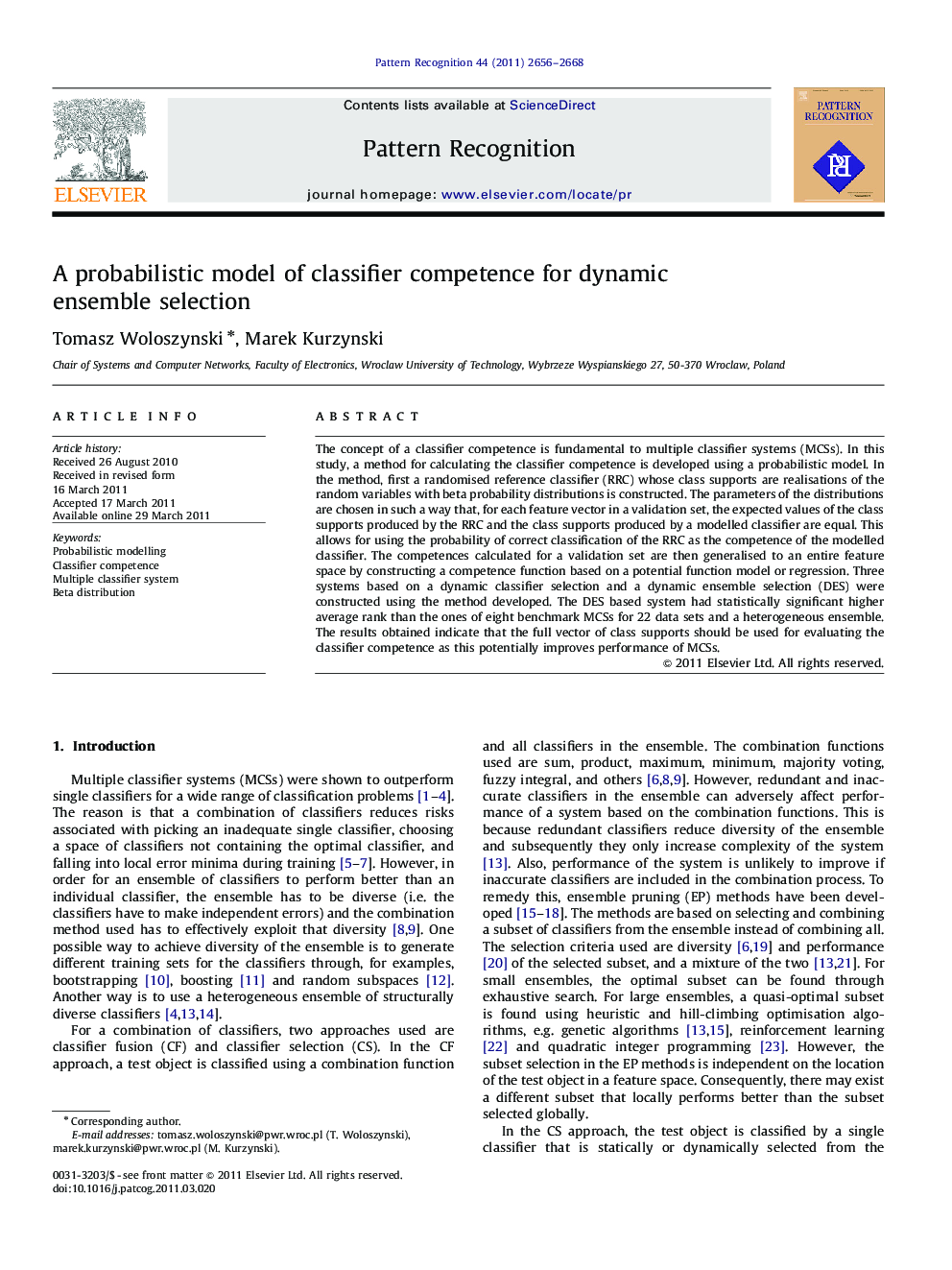| Article ID | Journal | Published Year | Pages | File Type |
|---|---|---|---|---|
| 533517 | Pattern Recognition | 2011 | 13 Pages |
The concept of a classifier competence is fundamental to multiple classifier systems (MCSs). In this study, a method for calculating the classifier competence is developed using a probabilistic model. In the method, first a randomised reference classifier (RRC) whose class supports are realisations of the random variables with beta probability distributions is constructed. The parameters of the distributions are chosen in such a way that, for each feature vector in a validation set, the expected values of the class supports produced by the RRC and the class supports produced by a modelled classifier are equal. This allows for using the probability of correct classification of the RRC as the competence of the modelled classifier. The competences calculated for a validation set are then generalised to an entire feature space by constructing a competence function based on a potential function model or regression. Three systems based on a dynamic classifier selection and a dynamic ensemble selection (DES) were constructed using the method developed. The DES based system had statistically significant higher average rank than the ones of eight benchmark MCSs for 22 data sets and a heterogeneous ensemble. The results obtained indicate that the full vector of class supports should be used for evaluating the classifier competence as this potentially improves performance of MCSs.
► A probabilistic model for calculating classifier competence is proposed. ► The model is based on a hypothetical randomised reference classifier (RRC). ► The RRC behaves, on average, like the classifier to be modelled. ► A classification system was constructed using a classifier ensemble and the RRC. ► The system constructed outperformed other systems based on competence measures.
